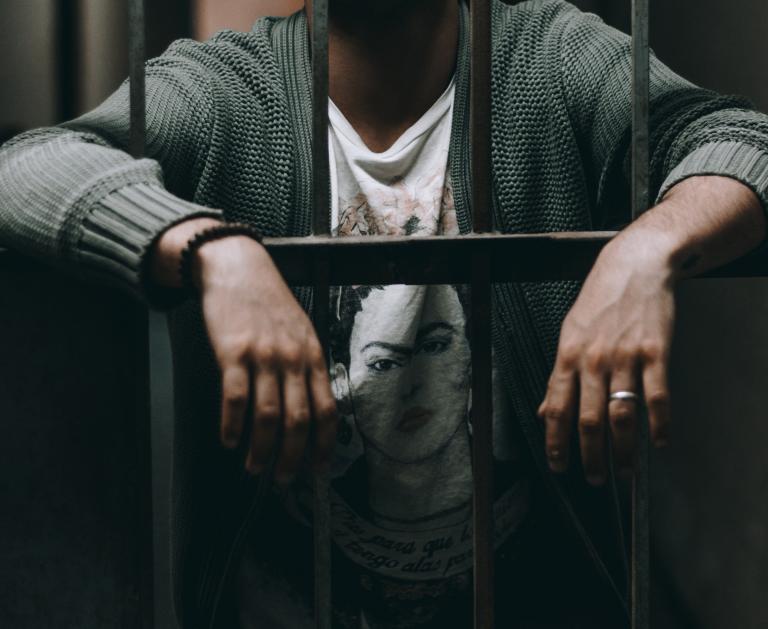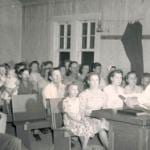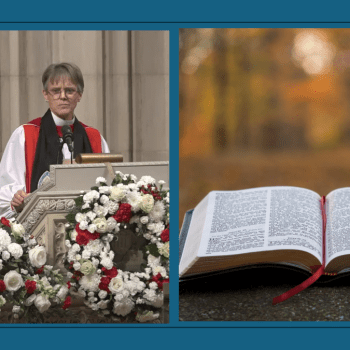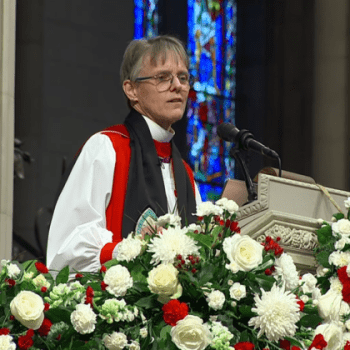“Jesus, are you the one?” Matthew 11:3
It was a question cried out in desperation from a prison cell where a man wearing a scratchy camel’s hair robe awaited his execution. John the Baptist sat in his cell thinking about the young prophet he had once baptized at the Jordan River, the one he believed to be the anointed savior from God. That day at the river seemed like another lifetime.

Now John was about to be killed.
His ministry of justice and repentance was being cut short. His life was about to come to a violent end. Why? Because he had called out King Herod and Queen Herodias for their corruption.
John was doing God’s work, doing what God had called him to do. And this is how it ends?
So John’s question sent to Jesus is born out of frustration, pain, and thwarted hopes.
“Jesus, are you the one who is to come, or are we to wait for another?”
In other words, things are looking pretty desperate here, Jesus. Are you really the Messiah? Are you the real deal? Or was I wrong that day at the Jordan River when I declared you to be the anointed of God?
John’s question issues forth from our mouths as well. If you follow the news about politics, things are looking pretty grim – no matter what party you support. If you follow the news about climate change, it ain’t looking too good. If you follow the news about immigrants trying to find safety, or children held in cages, the situation is not getting better. It’s getting worse.
So you may be able to relate to John the Baptist’s desperate question. It’s a crisis of faith. He has reached the end of his rope and the loss of his hope. The river is dried up, says John. My ministry for God has landed me in a prison cell. I am about to be killed.
So was it worth it? Are you worth it, Jesus?
I hear that question so often in my work with activists, with people who advocate for environmental issues, for immigration rights, for women’s rights, for the rights of people who are other-than-white. They do this work because they feel called by God, compelled by their faith to call out corruption, to minister to the least of these. But when things are getting worse – not better – it can make you question everything. You question your faith, your purpose in life, the goodness of humanity, and the goodness or even the existence of God.
I imagine that when John’s disciples stood before Jesus with the message they had delivered, he felt the anguish in that question.
It’s the anguish felt when the cause has been lost, when the last of the species has died, when the child lies lifeless and dead under the shiny foil blanket.
“Jesus, are you the one who is to come, or are we to wait for another?”
I imagine at that moment Jesus perhaps reaching for a piece of paper, writing something in very neat, careful handwriting, folding it up and handing it to John’s disciples to take back and slip between the iron bars of the jail cell. We might imagine John seeing that paper flutter down like a butterfly onto the cold dirt floor. He picks it up and unfolds the paper, his fingers trembling. On that piece of paper is written one simple thing.
Isaiah 35:5-6
Do you know what John would have done when he read that? A smile like sunshine would have shone forth from his face. Because he would have recalled those verses:
“Then the eyes of the blind shall be opened, and the ears of the deaf unstopped; then the lame shall leap like a deer, and the tongue of the speechless sing for joy. For waters shall break forth in the wilderness, and streams in the desert.”
His eyes would have filled and then overflowed with tears, like . . . streams in the desert. Because he would have known the answer encoded in that slip of paper. And that answer gave him so much peace, such a profound feeling of wellbeing and trust in the goodness of God, nothing else mattered. Not the prison bars. Not the cold dirt floor. Not the king’s armed guards. Not the sword they carried to violently end his life.
I imagine the scene later that day – Queen Herodias hoping to see a look of terror when she opened the lid on that silver platter. How shocked, how pierced her heart would be to see not fear, but a smile of joy frozen on that lifeless face looking up at her. It was a smile that says “Oh Herodias, Oh King Herod. The joke is on you. I have the last laugh. God has the last laugh. For I have obtained joy and gladness. My sorrow and sighing have just faded away.”
What does this kind of joy look like? What does Isaiah teach us about this joy?
Read Part Two: Flowers Preaching in the Desert: Isaiah 35:1-10

Leah D. Schade is the Assistant Professor of Preaching and Worship at Lexington Theological Seminary in Kentucky. She is the author of Preaching in the Purple Zone: Ministry in the Red-Blue Divide (Rowman & Littlefield, 2019), Rooted and Rising: Voices of Courage in a Time of Climate Crisis (Rowman & Littlefield, 2019), and Creation-Crisis Preaching: Ecology, Theology, and the Pulpit (Chalice Press, 2015).
Twitter: @LeahSchade
Facebook: https://www.facebook.com/LeahDSchade/
Read also:
Rooted and Rising in Advent: 28 Days for Connecting with Earth
Conspiracy of the Christian Kind: Advent 3
You Brood of Vipers! John the Baptist Gives Us Permission Not to Be Nice













